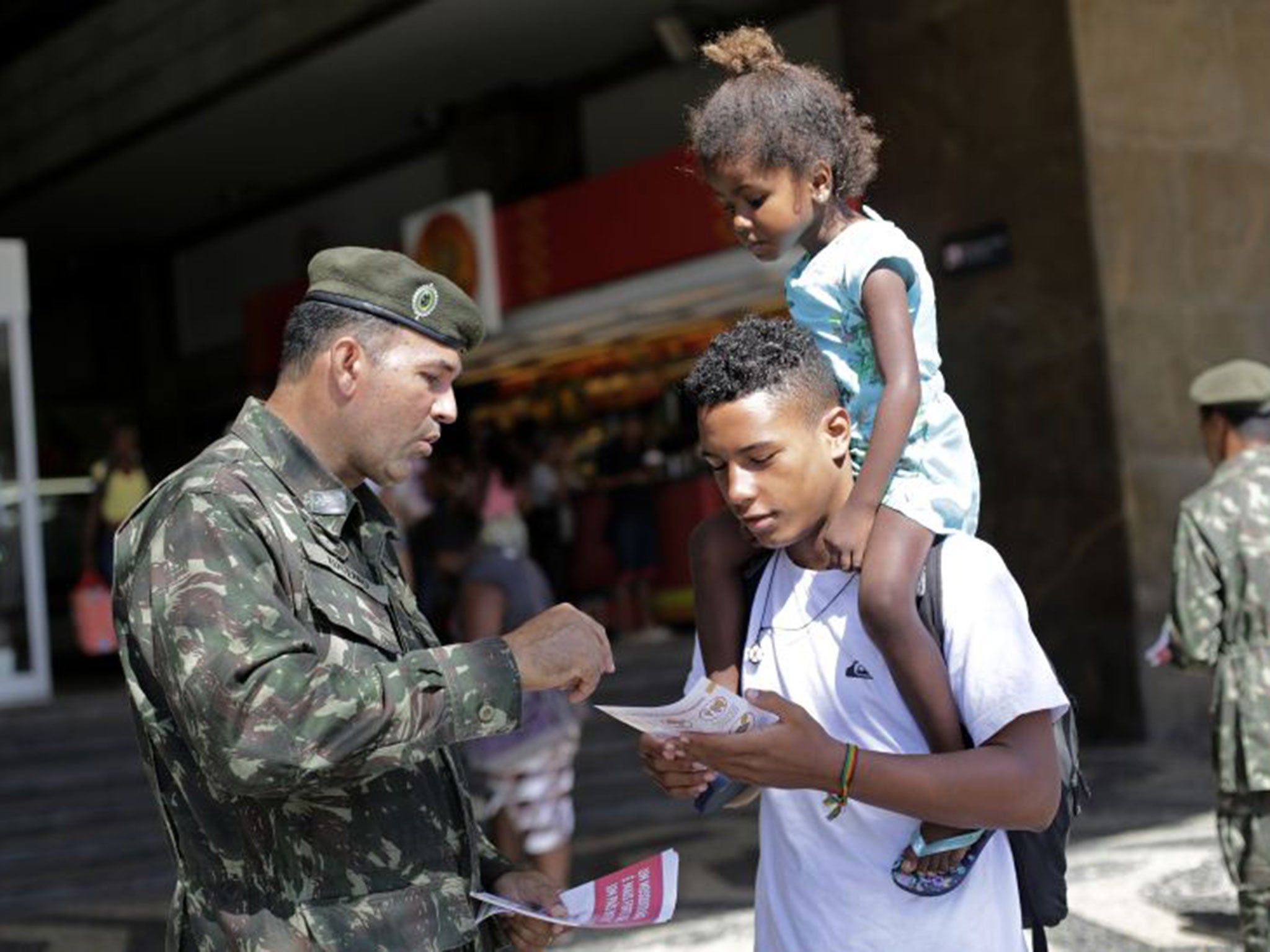Zika virus: Brazil sends its military out to battle deadly foe
'We have to protect the population, especially pregnant women, athletes and tourists who will come for the Olympic Games'

Your support helps us to tell the story
From reproductive rights to climate change to Big Tech, The Independent is on the ground when the story is developing. Whether it's investigating the financials of Elon Musk's pro-Trump PAC or producing our latest documentary, 'The A Word', which shines a light on the American women fighting for reproductive rights, we know how important it is to parse out the facts from the messaging.
At such a critical moment in US history, we need reporters on the ground. Your donation allows us to keep sending journalists to speak to both sides of the story.
The Independent is trusted by Americans across the entire political spectrum. And unlike many other quality news outlets, we choose not to lock Americans out of our reporting and analysis with paywalls. We believe quality journalism should be available to everyone, paid for by those who can afford it.
Your support makes all the difference.More than 200,000 members of Brazil’s armed forces were deployed across the country yesterday to hand out millions of leaflets, in an effort to raise awareness about the Zika virus. Brazil is at the centre of the current outbreak – which the World Health Organisation (WHO) said yesterday had spread to 34 countries, including 26 in the Americas. Zika is suspected of being linked to an increase in the birth defect microcephaly – a condition which leads to an abnormally small head and potentially an underdeveloped brain – in Brazil.
While the link between the virus and microcephaly has not been proven – the WHO expects confirmation within weeks – Marcelo Castro, Brazil’s health minister, has said that authorities in the country were “sure of the causal relationship” between the virus and birth defects. There have been more than 460 confirmed cases of microcephaly, and 4,300 suspected cases are currently being investigated in Brazil.
Around 220,000 army, navy and air force troops, accompanied by health agents and mosquito control teams, were intending to visit three million homes in 350 cities to advise people how to eliminate breeding areas for the Aedes aegypti mosquito which carries the virus, including the dangers of stagnant water.
“We have to protect the population, especially pregnant women, athletes and tourists who will come for the Olympic Games [in Rio de Janeiro later this year],” Aldo Rebelo, Brazil’s defence minister has said.
Zika is taking its toll on large swaths of the Americas. Yesterday, Colombia’s national health institute said more than 5,000 pregnant women were infected with Zika. There is also a suspected link between Zika and Guillain-Barré syndrome, a neurological disorder that can lead to paralysis, and the WHO said the condition was also on the increase.
The WHO’s weekly report said: “In the context of the Zika virus outbreak, Brazil, Colombia, El Salvador, Suriname and Venezuela have reported an increase of [Guillain-Barré syndrome]. The cause of the increase remains unknown, especially as dengue, chikungunya and Zika virus have all been circulating simultaneously in the Americas.”
There is no cure for Zika, although a vaccine could be available in 18 months. The WHO said “prevention measures have become critical” in order to stop the spread of the disease to other parts of the globe.
Join our commenting forum
Join thought-provoking conversations, follow other Independent readers and see their replies
Comments